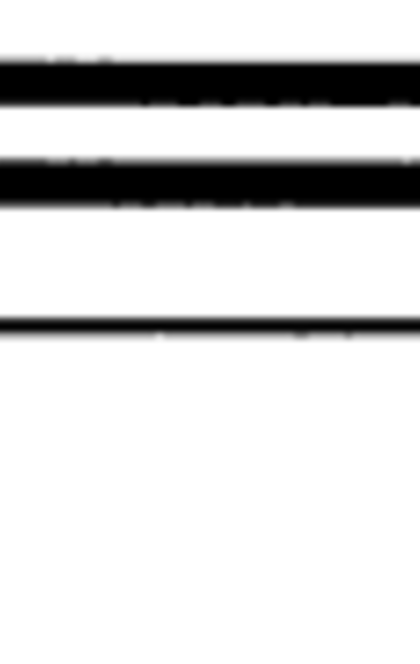
Shakespeare in France
French adaptations of William Shakespeare by classic French authors, translated back into English and introduced by Frank Morlock: Hamlet by Alexander Dumas, pere; Ophelia by Arthur Rimbaud; and As You Like It by George Sand.

Decadence and Symbolism
Collecting together eighty-six different pieces of prose from sixty-one authors, Decadence and Sybmolism: A Showcase Anthology, is the most broad-ranging anthology of its kind. Surveying the movements from their beginnings onward, the volume brings together texts from well-known exponents such as Rimbaud and Baudelaire, as well as numerous lesser-known authors, many of whose work is being made available in English for the first time.Editor and translator Brian Stableford provides an in-depth introductory essay, as well as brief biographies of the various personalities presented.Complete list of authors included: Charles Baudelaire Arthur Rimbaud Théophile Gautier Xavier Forneret Théodore de Banville Paul Verlaine X. B. Saintine Auguste de Villiers de l'Isle Adam Ernest Hello Catulle Mendès Joris-Karl Huysmans Charles Cros Frédéric Champsaur Stéphane Mallarmé Jean Moréas Gustave Kahn Jules Laforgue Charles Morice G. Albert Aurier Paul Adam Francis Poictevin Remy de Gourmont André-Ferdinand Herold Adolphe Retté Bernard Lazare Jean Lorrain Pierre LouYs Camille Mauclair Stuart Merrill Éphraïm Mikhaël Henri de Régnier Jules Renard Saint-Pol-Roux Gabriel de Lautrec Pierre Quilllard Marcel Schwob Frédéric Boutet Pierre Veber Tristan Bernard Judith Gautier Hugues Rebell Gaston Danville May Armand Blanc Renée Vivien Alfred Jarry Francis Jammes J. H. Rosny aîné Henri Austruy Léon Bloy Jean Richepin Louis Codet Léon Daudet Claude Cébel Jane de La Vaudère Edmond Haraucourt Henry Detouche Hélène de Zuylen de Nyevelt Jacques Lamer Gaston Pawlowski Maurice Magre Han Ryner
See all

From Absinthe to Abyssinia
Poetry. Translation. Translated from the French by Mark Spitzer. One of the many common beliefs about History's mostmythic poet is that he gave up writing after vanishing from France.After 130 years of misinformation, FROM ABSINTHE TO ABYSSINIA dispels this rumor and others by presenting works of Rimbaud's post-Paris prosethat have never before been seen in English. This collection, translated by Mark Spitzer, alsoincludes a section of poetry which includes highly innovative versionsof some of the poet's most well-known works, as well as many shockingand erotic poems that English-language readers have never had access toprior to the publication of these groundbreaking translations.
See all

Selected Poems and Letters
A phenomenonally precicious schoolboy, Rimbaud was still a teenager when he became notorious as Europe's most shocking and exhilarating poet. During his brief 5-year reign as the enfant terrible of French literature he produced an extraordinary body of poems that range from the exquisite to the obsene, while simultaneously living a life of dissolute excess with his lover and fellow poet, Verlaine. At the age of 21, he abandonned poetry and travelled across Europe before settling in Africa as an arms trader. This edition sets the two sides of Rimbaud side by side with a sparkling translation of his most exhilarating poetry and a generous selection of the letters from the harsh and colourful period of his life as a colonial trader.
See all

I Promise to Be Good
One of the most written-about literary figures in the past decade, Arthur Rimbaud left few traces when he abandoned poetry at age twenty-one and disappeared into the African desert. Although the dozen biographies devoted to Rimbaud’s life depend on one main source for information—his own correspondence—a complete edition of these remarkable letters has never been published in English. Until now.A moving document of decline, Rimbaud’s letters begin with the enthusiastic artistic pronouncements of a fifteen-year-old genius, and end with the bitter what-ifs of a man whose life has slipped disastrously away. But whether soapboxing on the essence of art, or struggling under the yoke of self-imposed exile in the desert of his later years, Rimbaud was incapable of writing an uninteresting sentence. As translator and editor Wyatt Mason makes clear in his engaging Introduction, the letters reveal a Rimbaud very different from our expectations. Rimbaud—presented by many biographers as a bohemian wild man—is unveiled as “diligent in his pursuit of his goals . . . wildly, soberly ambitious, in poetry, in everything.”I Promise to Be Good: The Letters of Arthur Rimbaud is the second and final volume in Mason’s authoritative presentation of Rimbaud’s writings. Called by Edward Hirsch “the definitive translation for our time,” Mason’s first volume, Rimbaud Complete (Modern Library, 2002), brought Rimbaud’s poetry and prose into vivid focus. In I Promise to Be Good, Mason adds the missing epistolary pieces to our picture of Rimbaud. “These letters,” he writes, “are proofs in all their variety—of impudence and precocity, of tenderness and rage—for the existence of Arthur Rimbaud.” I Promise to Be Good allows English-language readers to see with new eyes one of the most extraordinary poets in history.
See all

Rimbaud: Poems
The Everyman's Library Pocket Poets hardcover series is popular for its compact size and reasonable price which does not compromise content. Poems: Rimbaud contains selections from Rimbaud's work, including over 100 poems, selected prose, "Letter to Paul Demeny, May 15, 1871," and an index of first lines.
See all

A Season in Hell & The Drunken Boat (Second Edition)
A reissue of Rimbaud’s highly influential work, with a new preface by Patti Smith and the original 1945 New Directions cover design by Alvin lustig. New Directions is pleased to announce the relaunch of the long-celebrated bilingual edition of Rimbaud’s A Season In Hell & The Drunken Boat — a personal poem of damnation as well as a plea to be released from “the examination of his own depths.” Rimbaud originally distributed A Season In Hell to friends as a self-published booklet, and soon afterward, at the age of nineteen, quit poetry altogether. New Directions’s edition was among the first to be published in the U.S., and it quickly became a classic. Rimbaud’s famous poem “The Drunken Boat” was subsequently added to the first paperbook printing. Allen Ginsberg proclaimed Arthur Rimbaud as “the first punk” — a visionary mentor to the Beats for both his recklessness and his fiery poetry. This new edition proudly dons the original Alvin Lustig–designed cover, and a introduction by another famous rebel — and now National Book Award–winner — Patti Smith.
See all

Illuminations, and Other Prose Poems
The prose poems of the great French Symbolist, Arthur Rimbaud (1854-1891), have acquired enormous prestige among readers everywhere and have been a revolutionary influence on poetry in the twentieth century. They are offered here both in their original texts and in superb English translations by Louise Varèse. Mrs. Varèse first published her versions of Rimbaud's Illuminations in 1946. Since then she has revised her work and has included two poems which in the interim have been reclassified as part of Illuminations. This edition also contains two other series of prose poems, which include two poems only recently discovered in France, together with an introduction in which Miss Varèse discusses the complicated ins and outs of Rimbaldien scholarship and the special qualities of Rimbaud's writing. Rimbaud was indeed the most astonishing of French geniuses. Fired in childhood with an ambition to write, he gave up poetry before he was twenty-one. Yet he had already produced some of the finest examples of French verse. He is best known for A Season in Hell, but his other prose poems are no less remarkable. While he was working on them he spoke of his interest in hallucinations--"des vertiges, des silences, des nuits." These perceptions were caught by the poet in a beam of pellucid, and strangely active language which still lights up--now here, now there--unexplored aspects of experience and thought.
See all








Comments